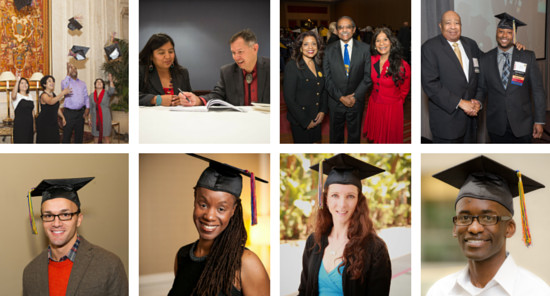
Starting on the Road to a Business Ph.D.
If you are one of the many people who have worked successfully for several years in corporate America, and now want to consider becoming a business professor, this article is for you. As head of The PhD Project, which recruits and encourages underrepresented minorities to pursue this dream, I and my team for nearly 25 years have been helping people like you learn what you need to know before moving ahead with the dream.
Picking right up from my last article, let’s start considering how, where, and when to apply to a business school doctoral program. I’m assuming you’ve answered the “why” question for yourself… but I’ll come back to some further thoughts on that topic in a future article.
What is involved in applying to a business doctoral program?
It is different from what you encountered in applying to undergraduate or Master’s study. Relative to their undergraduate programs, universities admit only a very few individuals to their doctoral programs – often just a small handful. Admission to a business doctoral program is highly selective and highly competitive.
As such, their admissions processes are more intensive, and more individual. To business schools, the doctoral program is where they educate and prepare their future peers – people who will go on to become professors like them. Faculty tend to get personally engaged in the multi-year doctoral studies process and its outcomes. They, not central admissions professionals, decide who gets in and who doesn’t. They want to know, above all, if you have the motivation, understanding, skill sets, qualities and capability to become one of them. Grades and GMAT scores are just the beginning of your admissions process. It might also involve:
- Test preparation and/or remedial catch-ups. Just as with undergraduate and Master’s level admissions tests, many people take prep classes before taking the GMAT. Whether you do or don’t, there is one critical factor with a Ph.D., especially if you are several years out of school: As a doctoral student, you’ll be doing your own research. Your quantitative skills will need to be sharp. It is not uncommon for potential Ph.D students to decide they need catch-up courses in mathematics or statistics, to become stronger applicants and doctoral candidates.
- Your own research into universities and doctoral programs, before you apply, to judge which ones are the “right fit” for you. (Hint: it is not necessarily the one nearest or most convenient to you, or even the most prestigious “brand name” in your area.) You might qualify for the most elite school in your area, but that doesn’t necessarily make it a “right fit.” Forget much of how you thought and proceeded when applying for an MBA. A PhD is different. (More on this later.)
- A personal statement -- a written essay in which you address your motivations, preparation, plans and qualifications not only for a Ph.D. in general but for pursuing one in the specific school(s) to which you are applying.
- A campus visit. I can’t stress this enough: earning a Ph.D. entails a close working relationship with faculty members who will be invested in your success. Before entering into such a situation, you’ll ideally want to see them and they’ll want to see you.
How do I know if I am ready to apply?
If you’ve been following my earlier articles, you know that you need to be a full-time student if you are serious about it, and that a business Ph.D. is a four to seven year experience. Plus, if you’re coming into a doctoral program from a professional level job, chances are you’ll experience a significant income drop. (As I’ve noted in earlier articles, universities generally do not charge tuition for Ph.D. students and offer them research or teaching assistantships – but you won’t likely see a six figure income until you finish and become a professor.)
And so, many prospective applicants need to plan well in advance. Financial planning, family planning and personal planning all take time. Maybe you need to earn a corporate income for a few more years to save up for the lean student years ahead. Maybe you want to see your kids enter school. Maybe you’ll decide to sell your house before moving to your future university’s town. From the moment you decide to go for it, it might well be several years before you are ready to apply. Do not let this deter you: many, if not most, business Ph.D. applicants are in the same situation.
Earning a Ph.D. and becoming a professor in business school is a fulfilling and rewarding career choice. Make it wisely – and plan thoughtfully.
See how current business professors handled their financial and personal planning concerns so they could trade in corporate life for academia – and how The PhD Project helps underrepresented minorities get there.
Network with university representatives, meet PhD Project doctoral students and faculty at our annual conference. Deadline to apply has been extended until October 9th. Visit: www.phdproject.org
Librarian at Bloomfield College
6yGood article but should mention how competitive it is to be a professor.
FinTech Business Leader
6yExcellent article and fantastic insight that is realistic - thank you!
Employee Experience and Listening @ RTI | IO Psych Ph.D.
6yDominique J. Lee